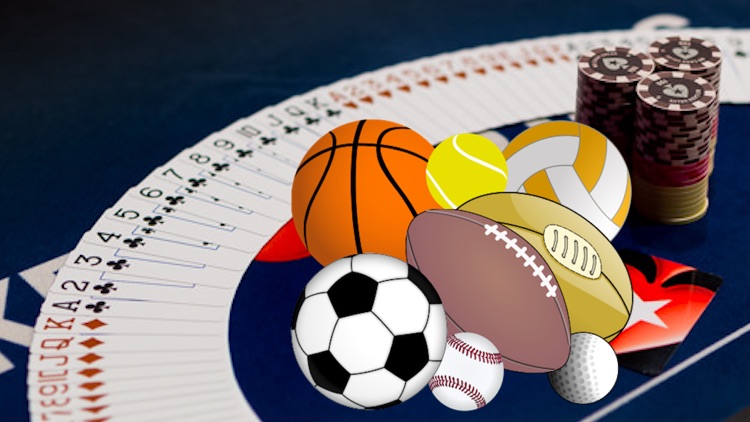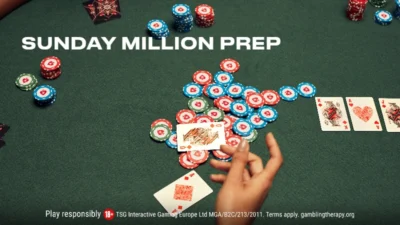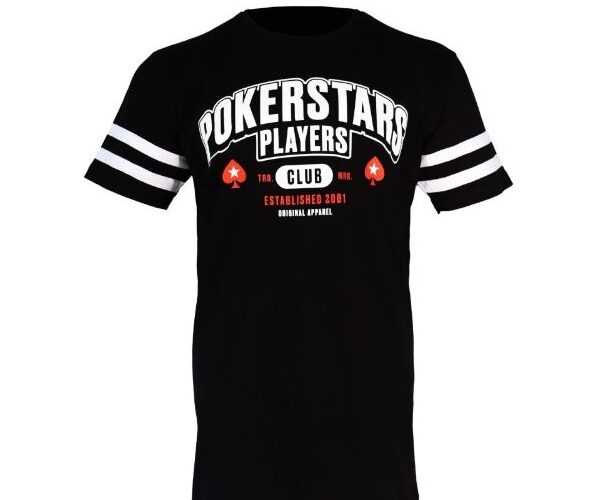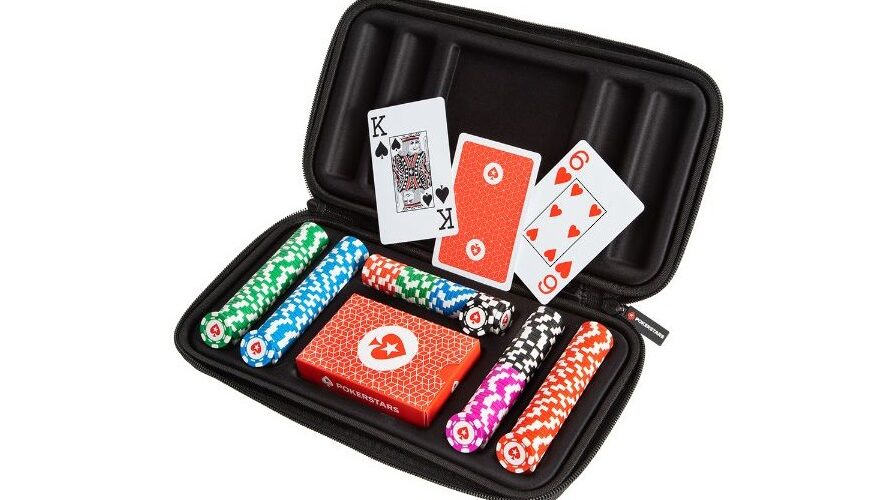Sports are a huge part of daily life all over the world. It’s not surprising, then, to find the special language of sports often finding its way into non-sporting contexts, providing analogies and metaphors to help us communicate and express ourselves.
The same is true for poker and its unique lingo as well. Everywhere poker is played, poker terms and phrases have likewise entered everyday discourse.
In fact, we’re just as likely to encounter someone using a sports idiom in a non-sports context as we are to hear poker terms pop up when away from the tables. And of course there is a lot of overlap as well, a likely consequence of the competitive nature of poker — a game that many like to talk about as though it were a sport.
Enough with the preliminaries. Let’s “get the ball rolling” (so to speak) and talk about some of the more popular sports expressions while also noting some instances of sports and poker vocabulary coinciding along the way.
Football (Soccer)
A new season of the Premier League has already kicked off in exciting fashion. Indeed, to talk of something “kicking off” is one of many football (or soccer) idioms used in everyday life.
For instance, just like a key substitution, the issuing of a red card, or a crucial VAR ruling, we instinctively call any consequential action a “game changer.” When someone makes a particularly self-sabotaging mistake, we’ll say they committed an “own goal.” Of course, you can increase your chances of avoiding such a mistake if you’re careful and “keep your eye on the ball.”
Football (American)
Meanwhile in just a couple of weeks a new NFL season will also get started. American football has likewise provided a whole host of phrases and terms used in everyday life. Think about how often a boss or team leader is called the “quarterback,” and how those who second-guess a decision are frequently referred to as playing “Monday morning quarterback” (a reference to day-after discussion of Sunday games). That sort of talk often crops up if someone “dropped the ball”
On an NFL roster, the kicker is often regarded as a distinct type of football player — that is, one who typically avoids the physicality of the game endured by other position players while specializing in extra points and field goals. In poker a “kicker” refers to a side card that like NFL kickers is often employed to break a tie (e.g., we both paired our ace, but my king “kicker” beats your queen). Meanwhile outside of sports or poker, a “kicker” usually also refers to something extra or special, as in “here’s the kicker — because of all the trouble we didn’t have to pay for our meal.”
Boxing
Boxing has probably produced more everyday idioms and expressions than any other sport. Who hasn’t referred to having “someone in your corner” to support you, a reference to the typical position of a boxer’s trainer? Or complained about someone “hitting below the belt” with a “low blow” — not allowed in boxing, and frowned upon as well when done figuratively outside the ring? Of course, when facing difficulty the person who “rolls with the punches” or handles adversity the best typically succeeds — or at least doesn’t have to “throw in the towel” or give up.
In poker tournaments we often refer to a player getting eliminated as a “knockout,” an obvious borrowing from boxing. What you might not know is how the phrase “to go in the tank” used in poker to describe a player thinking about a decision also has a boxing-related origin. Actually in boxing the phrase has to do with boxers throwing bouts and “taking a dive” (as though into a tank of water). Meanwhile poker probably more likely picked up the phrase from the concept of “think tanks” where a body of experts put their heads together to solve problems and recommend policies.
Basketball
Basketball provides a number of other expressions, such as putting on a “full-court press” when exerting a special amount of effort to accomplish something. You’ve also probably heard someone talk about a sure thing or easy decision as a “slam dunk.”
When trying to find overlap between basketball and poker vocabulary, both share a number of terms though in a largely incidental way. “Paint” refers to the key or three-second lane in basketball, but also to face cards in poker. In both people often say “trey” to refer to the number three — as in a three-pointer or card with the rank of three. The ball in basketball is sometimes called the “rock,” a term used to refer to a super-tight poker player.
Also common to both basketball and poker (and a more meaningful connection) is the term “brick.” That’s bad in both — in basketball referring to a particularly bad shot, and in poker to a particularly bad or useless card.
Baseball & Cricket
It’s hardly original to point out that baseball has likewise produced a wide variety of commonly-used idioms employed in non-baseball situations. I mean, when I make that claim it’s not like I’m coming out of left field or anything. 😉
When you face a challenge and do your best, someone might say that in such circumstances you’re a person who is able to “step up to the plate.” If you do really well, someone might say you “hit it a home run” or “knocked it out of the park,” which means that going forward circumstances have changed enough to make it “a whole new ball game.”
I think it’s safe to describe one poker term as having been taken directly from baseball — a “walk.” When everyone folds to the big blind, thereby giving that player the small pot (just the small blind and antes if in play), that’s very much like a walk in baseball when a batter gets four balls and thus a free pass to first base.
I’m not going to claim much knowledge of cricket, although even without understanding the game I know what is meant when someone says they’ve encountered a “sticky wicket” — that is, an awkward or hard-to-manage situation. (Looking it up, I see the phrase literally refers to the quality of a still-drying pitch after a recent rain on which it is difficult to bat.)
Hockey
Even non-hockey fans might know what a “hat trick” is — three goals by the same player. In fact, the phrase first originated in cricket and dates back to the mid-19th century as a reference to three wickets taken by a bowler in three straight balls (again forgive me, I’m having to look that up as I still need to learn how the game is played).
In any case, hockey took the phrase over, and apparently somewhere along the way an enterprising milliner started awarding a free hat to players who scored three goals in one game. Eventually fans began throwing hats on the ice after a player scored a third goal as well.
A more often used phrase from hockey, though, has to be “taking off the gloves” to refer to preparations for some kind of conflict, physical or otherwise. That, of course, is a reference to the many fights in hockey with players taking off their gloves typically a signal that fisticuffs will follow. I suppose a particularly aggressive-seeming check-raise on the turn might be referred to similarly.
Golf
Performing at an average level is often called being “par for the course,” a phrase from golf that might be used unironically or with a measure of sarcasm. An example of the latter would be when a person’s aces get cracked by a runner-runner flush and the loser exhales and says “that’s par for the course.”
Golf also seems a likely source for the phrase “in full swing,” a reference to something being well underway or moving forward in a vigorous way, although that one might have come from other sports, too.
Aces are obviously good in both golf and poker. There’s one other small overlap, too, to note, the somewhat obscure poker term “golf bag.” The term refers to a particular poker hand — a flush comprised of clubs. (Get it?)
Horse Racing
We talk about “coin flips” a lot in poker, although both there and elsewhere any close competition is sometimes described as a “horse race.” And a lot of times those contests aren’t decided until the end, going “down to the wire” with someone finally winning “by a nose.”
Poker has borrowed the term “horse” from the sport, too, as a reference to a player that has been backed by someone else. Imagine the backer as the jockey, “riding” his or her “horse” who is playing with the backer’s money.
Track
Finally, track provides a lot of expressions as well. Whenever we refer to a “front runner” in a political campaign — or a poker tournament — we’ve borrowed a term from track. In fact, just staying on course and not getting too distracted is often referred to as being “on the right track,” another phrase referring to various sports involving competitors running or racing around a track.
The longest regular track event is of course the 26.2-mile long marathon, which is a term often also used to refer to any activity requiring patience and/or endurance. Indeed, it’s practically a cliché to say a poker tournament “is a marathon, not a sprint.” (They’ve even created a special “Marathon” event at the WSOP, no doubt inspired by the connection.)
Speaking of track-related expressions, for this survey of sports and poker expressions I’ve at last reached the finish line. What other examples can you think of?
Photo: Sports portal bar icon (adapted), Sven Manguard, CC BY-SA 3.0.
Back to Top











